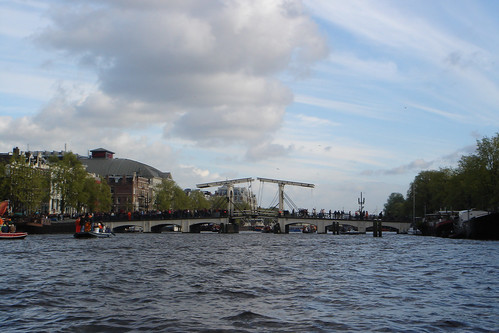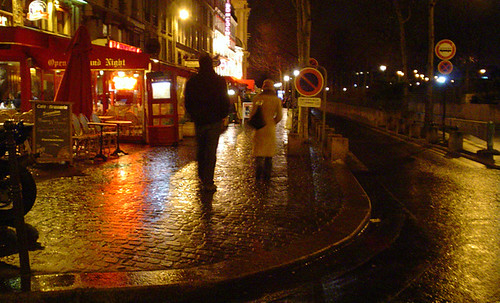Since yesterday was not-one-immigrant day in the US, today might be a good time to talk about something related here on the communique.
As many of you may remember fondly, it was only 2 years ago yesterday that Cyprus, Czech Republic, Estonia, Hungary, Latvia, Lithuania, Malta, Poland, Slovakia, Slovenia, became new members of big blue. Yes, those were exciting times that resulted in a Union of 460 millon people and an economic powerhouse of sorts. Maybe more important, for us regular people, was that being a citizen of the EU meant that you now had certain universal rights in all member states: to work, live, travel, do all kinds of activities – anywhere within the 25 member states. As a person who’s entire adult life has been shaped by these rights, I was naturally very pleased that more people would be able to experience what I have experienced as a Portuguese/European citizen.
Unfortunately, as is the case with so many politicized issues, certain countries (Germany, Austria, Luxembourg, Netherlands, UK, France, etc.) fairly quietly put an asterix onto the addition of the new EU states. This extra clause involved limiting or flat out preventing new EU citizens from places like Poland or Slovakia, from exercising their right to free movement and seeking employment within their national borders. Complete with extensions for these provisions, some of which expired this year, as in the case of the UK. Others which carry on and have been open-ended extended, as in the shameful case of the Netherlands.
In other words they may say the new Eastern European Nations are part of the EU. They may even show up to ceremonies, shake hands, and pose for photos with officials from that member state. But they don’t actually respect or honor the rights that membership entitles all citizens, including their own. So next time anyone starts talking highly of the big EU countries, or the Netherlands, make sure you remind them of the xenophobic, underhanded, and perhaps even racist policy of the sitting government that for some mysterious reason – people still haven’t forced to resign.

 I listened
I listened  We’ve spent a good amount of time comparing life and work in the Netherlands versus France. Naturally we’ve touched upon the demonstrations in the
We’ve spent a good amount of time comparing life and work in the Netherlands versus France. Naturally we’ve touched upon the demonstrations in the  First of all fuck the French government, especially Sarkozy since his signature of iron fisted police aggression is all over this one. Prime minister Villepin has also proven to be a complete coward who consistantly fails to represent people who never elected him in the first place. (the man has never run for public office!)
First of all fuck the French government, especially Sarkozy since his signature of iron fisted police aggression is all over this one. Prime minister Villepin has also proven to be a complete coward who consistantly fails to represent people who never elected him in the first place. (the man has never run for public office!)  Perhaps you’ve never thought about it. Maybe you’ve even sailed on one of those mickey mouse cruises, and while playing shuffle board the thought of one day having to dispose of this ship never crossed your mind. But it has to be done. And worst of all, lots of these ships leave a very
Perhaps you’ve never thought about it. Maybe you’ve even sailed on one of those mickey mouse cruises, and while playing shuffle board the thought of one day having to dispose of this ship never crossed your mind. But it has to be done. And worst of all, lots of these ships leave a very